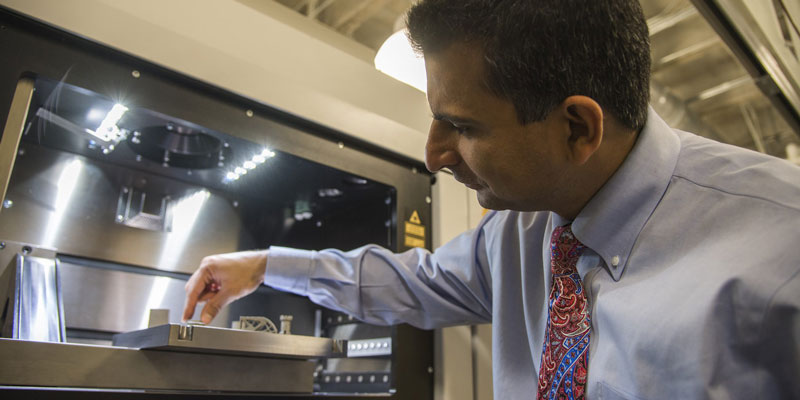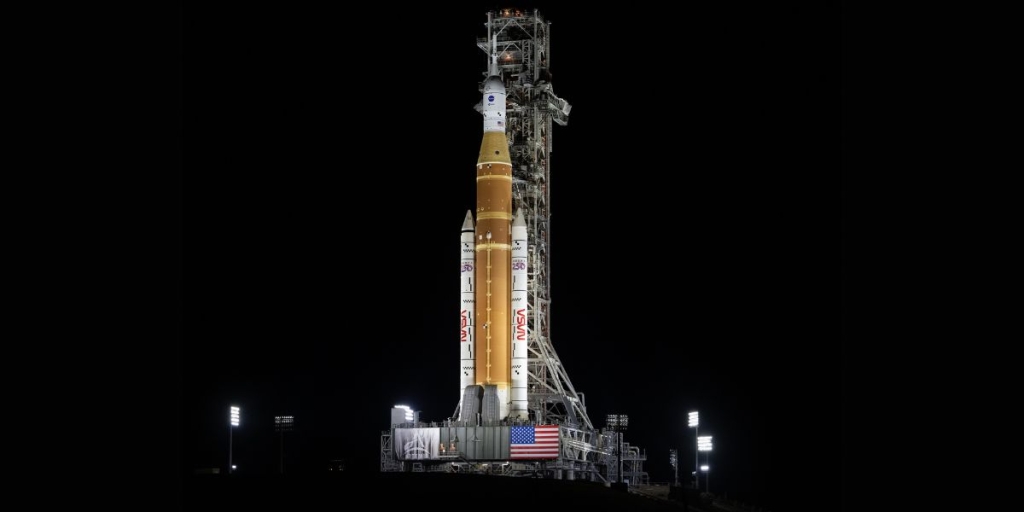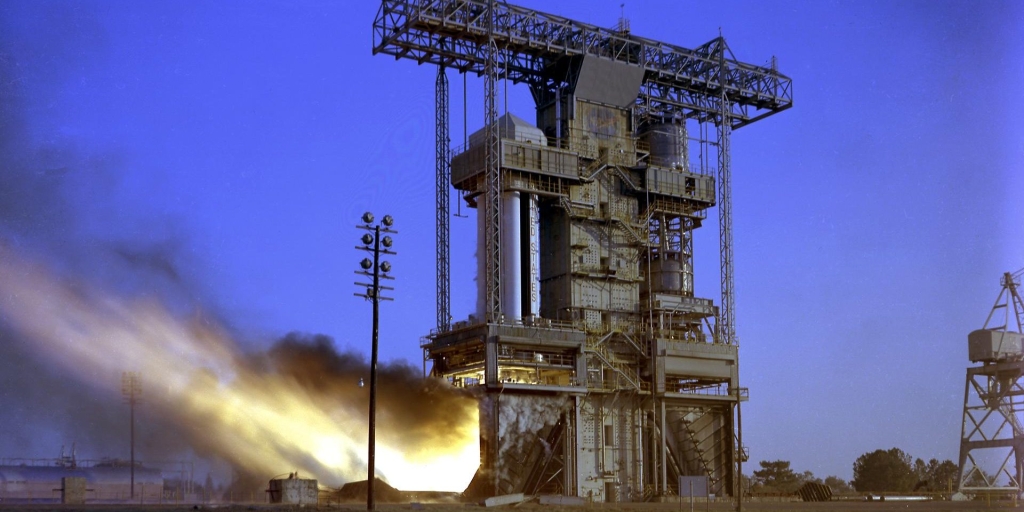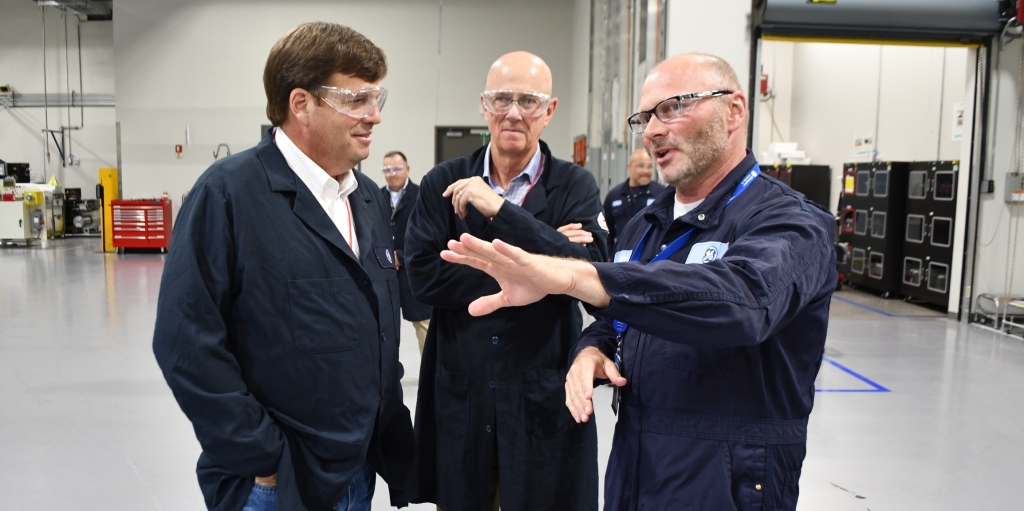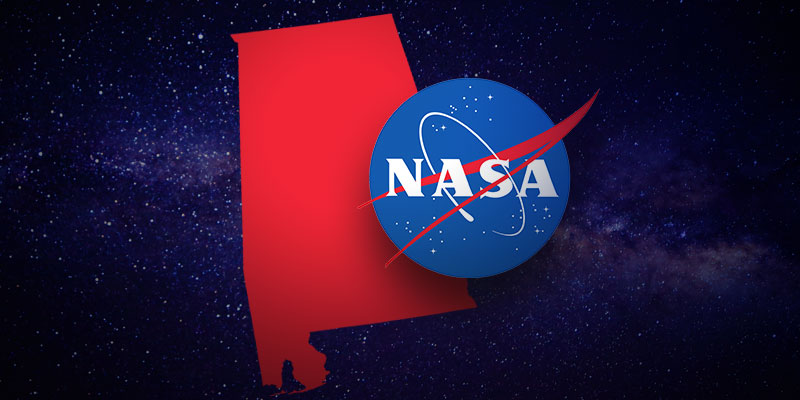Additive technologies commonly referred to as 3-D printing are revolutionizing the manufacturing industry, giving engineers and designers new methods to create custom parts in aerospace and other industries.
Auburn University is moving toward its goal of being a leader in this game-changing technology. It’s making strategic investments to broaden its capabilities in additive manufacturing and building partnerships with organizations such as NASA and companies including GE Aviation.
Greg Canfield, secretary of the Alabama Department of Commerce, said Auburn’s concentration on additive manufacturing is positioning the university’s Samuel Ginn College of Engineering as a national leader in this field.
“Additive manufacturing represents a significant breakthrough that will reshape how manufacturers produce all kinds of products, and it’s critical that Alabama’s workforce is prepared for this technology,” Secretary Canfield said.
“Auburn University is laying the foundation to ensure that we’re fully ready for future advances.”
That includes supporting the Alabama delegation at the Farnborough International Airshow near London next week.
Larry Fillmer, executive director of the Auburn Research and Technology Foundation, or ARTF, and Cary Chandler, director of business development for ARTF, will be available to meet with aerospace companies to discuss potential opportunities for collaboration with Auburn on projects to advance applied research in additive manufacturing and workforce development.
The overall objective is long-term economic growth for Alabama.
‘GO-TO PLACE’ FOR ADDITIVE
Auburn has hired additional faculty with expertise in additive manufacturing and now has more than 20 faculty members involved in the field. In addition, the university has spent over $8 million on teaching and research equipment, including 3-D printers and instrumentation such as a world-class fatigue testing laboratory and an X-ray computed tomography non-destructive testing center.
The moves have paid off.
Auburn has been involved in sponsored additive manufacturing research programs from NASA, the National Science Foundation, the Office of Naval Research, the National Institute of Standards and Technology, or NIST, and private industry, among others.
An important step for Auburn was the 2016 creation of the Center for Industrialized Additive Manufacturing, with a $1.5 million NIST grant to help small manufacturers use additive manufacturing for reliable production of metal parts.
For Tony Overfelt, professor of materials engineering, who was the inaugural leader in the additive manufacturing focus at Auburn, the center representedan opportunity to propel Alabama to a leadership role in additive manufacturing and spur workforce development by immersing students in the new technology.
“As we launched our efforts in 2016, one of our long-term goals was to make the state of Alabama the go-to place for additive manufacturing,” he said.
And Auburn intends to lead the way.
“The creation of the Auburn University Center for Industrialized Additive Manufacturing helped position Auburn at the forefront of this growing field of research,” said Christopher B. Roberts, dean of the Samuel Ginn College of Engineering.
“This reaffirms our college’s commitment to advancing research in manufacturing, which is vital to the state of Alabama and the nation.”
NASA ALLIANCE
Meanwhile, Auburn’s additive manufacturing link to NASA has grown particularly strong.
The university and the space agency signed a cooperative agreement focusing on additive manufacturing in late 2017 and together they formed the National Center for Additive Manufacturing Excellence, or NCAME.
In January 2018, Auburn President Steven Leath visited Huntsville to see first-hand Auburn’s extensive involvement with NASA’s Marshall Space Flight Center.
While there, Auburn-trained engineers working in NASA’s additive manufacturing center showed Leath where they are constructing flight hardware for the Space Launch System, or SLS, using innovative 3-D printing technologies. The SLS is NASA’s Mars rocket, now under development.
“The rapidly expanding field of advanced manufacturing requires new skill sets, or, in other words, a new workforce of highly trained specialists,” Leath said. “Auburn is educating and training a growing number of engineers to meet that need—working hand-in-hand with our industry and government partners to ensure they have what they need to bring these technologies out of the lab and into the workforce.”
“Joining forces with NASA and creating NCAME elevates Auburn’s additive manufacturing program even higher. We believe that our joint efforts in AM research and workforce development will help take the U.S. back to the moon and ultimately to Mars,” said Nima Shamsaei, associate professor in mechanical engineering and director of NCAME.
In March 2018, ASTM International, a global standards organization, selected the Auburn-NASA partnership, along with EWI and the U.K.-based Manufacturing Technology Centre, or MTC, as the winners in a global competition for its first Center of Excellence focusing on additive manufacturing. EWI is a leading engineering and technology organization, and MTC develops innovative manufacturing processes and technologies.
The goal for these organizations and their partners is to create a global innovation hub that advances technical standards, related research and development, education, training and more.
“It’s clear that this new center has the potential to shape the future of industries like aerospace, auto, medical and more,” said Katherine Morgan, president of ASTM International.
Shamsaei, who is Auburn’s lead in the Center of Excellence, says, “As a primary mechanism for standards-related research, the ASTM Additive Manufacturing Center of Excellence seeks to close knowledge gaps and encourage innovation.”
The ASTM Center of Excellence will be housed in the Gavin Engineering Research Laboratory, a $22 million project being completed on campus this summer with 60,000 square feet of labs and office space for work on additive manufacturing of metals, as well as advanced polymers and composites.
GE AVIATION
The university has also built a strong partnership with GE Aviation, a leader in additive manufacturing that operates a manufacturing plant in Auburn where jet engine fuel nozzles are produced using additive manufacturing techniques.
Last year, GE selected Auburn as one of just eight universities in the world to participate in their groundbreaking academic program focusing on 3-D printing research and education initiatives.
In addition, students in Auburn’s Samuel Ginn College of Engineering have worked with the company’s engineers on a number of real-world design and testing problems.
(Courtesy of Made in Alabama)




